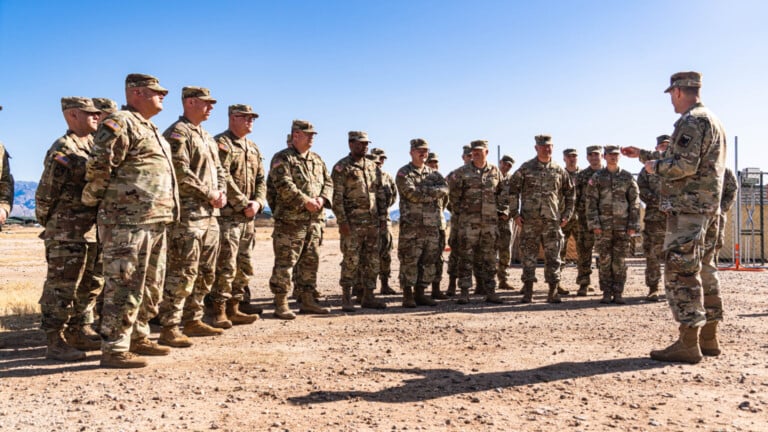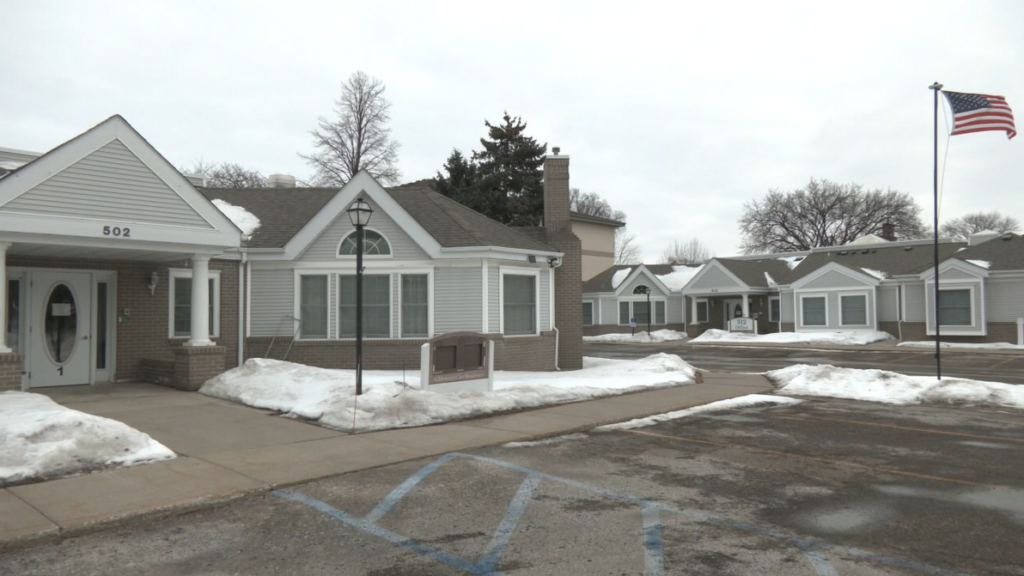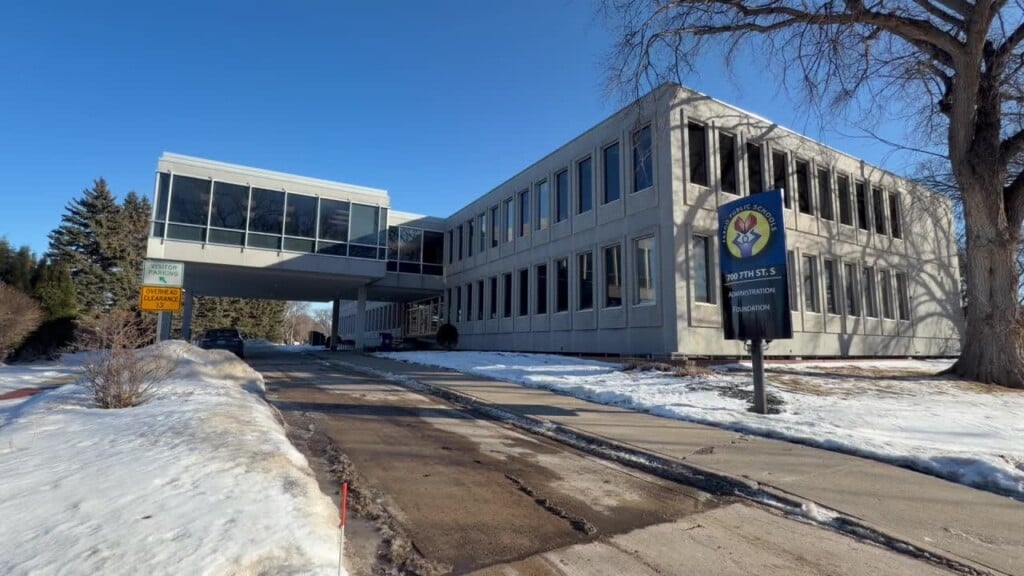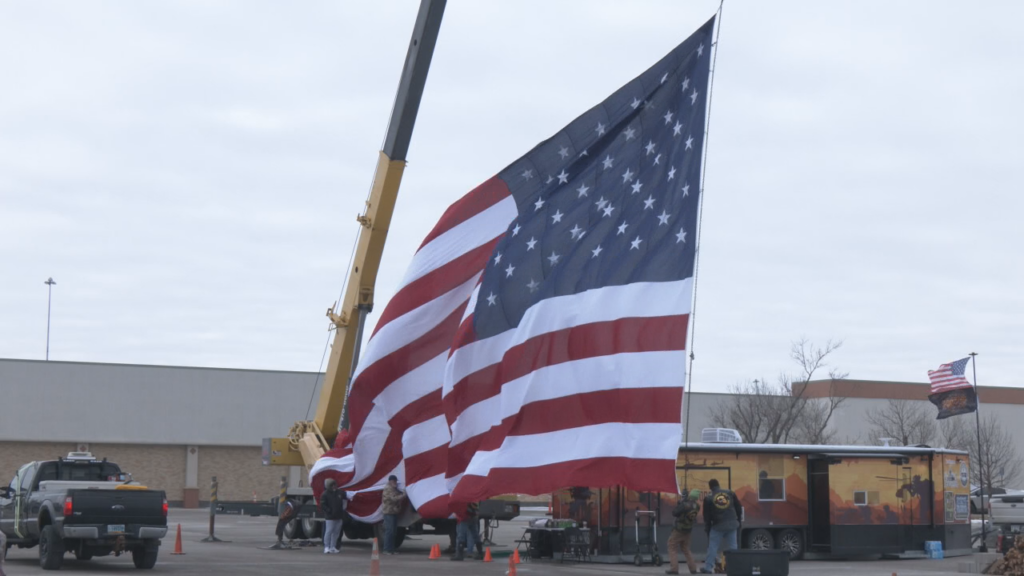North Dakota National Guard troops have not been asked to aid law enforcement

BISMARCK, N.D. (North Dakota Monitor) — North Dakota National Guard troops have not been requested for local or federal law enforcement operations, according to the governor’s office.
State Guard officials have not had any specific discussions about deploying soldiers and airmen domestically, said Adjutant General Mitchell Johnson.
About 1,000 North Dakota National Guard members trained last weekend in their specialties, Johnson told the North Dakota Monitor, but there have not been any discussions about deploying them imminently to assist with crime reduction or immigration enforcement operations.
“I would say we are always training to be ready for whatever we might be called for,” Johnson said.
Johnson, also director of the Department of Emergency Services and an Air Force brigadier general, said Friday the National Guard can be activated either federally or by the state to support firefighters and local law enforcement.
What deployments look like are “situation dependent,” Johnson said, and responsive to each scenario as it comes in.

Brig. Gen. Mitchell Johnson, adjutant general of the North Dakota National Guard, speaks during a change of command ceremony after being sworn in to his new position on Sept. 15, 2024. (Photo by Michael Achterling/North Dakota Monitor)
“Bottom line is, if resources are exceeded, and local resources are exceeded, for instance firefighting resources are not enough, then there’s a good chance that the National Guard is an answer, maybe not the answer, but an answer to that acute problem,” Johnson said.
He said he has not participated in any preliminary discussions about deploying National Guard members or resources to assist with local or federal law enforcement operations domestically.
Johnson said the 54 adjutant generals from all 50 states, three U.S. territories and Washington, D.C., hold regular calls on administrative concerns involving Guard members, but those typically revolve around funding, not specific deployments.
More than a dozen states have approved recent National Guard deployments to Washington, D.C., and Los Angeles with some ordered to assist U.S. Immigration and Customs Enforcement officers, according to Stateline.
On Friday, Tennessee Gov. Bill Lee confirmed to the Tennessee Lookout that he’s been in “constant communication” with President Donald Trump’s administration about deploying the state’s National Guard members to Memphis as part of an effort to crack down on crime.
North Dakota Gov. Kelly Armstrong was unavailable for an interview last week. Spokesperson Mike Nowatzki declined to answer questions about what circumstances could prompt the governor to authorize a National Guard deployment.
“We don’t speculate on potential North Dakota National Guard deployments,” Nowatzki said in a statement.
He added using National Guard soldiers and resources is a decision that is “not taken lightly” since every deployment pulls soldiers and airmen away from their families and employers.
“We all realize how important it is to support the citizens of North Dakota and also what it means to take Guardsmen away from their day jobs to do that, so it’s always a balance,” Johnson said.
Johnson said the state’s National Guard can perform crowd control and other types of law enforcement operations, but most of the time the Guard’s military police or security forces perform those types of actions.
North Dakota National Guard members have supported law enforcement operations in the past, including during the 2016 and 2017 Dakota Access Pipeline protests, though they did not make arrests.
North Dakota Guard troops have also been deployed multiple times to the southern border.
“Every situation is unique, with multiple variables to consider in determining whether Guard mobilization is appropriate and, if so, under which status,” Nowatzki said.
State national guards can be activated by the governor and paid for by the state. They can also be deployed and paid for by the federal government under Title 10. A third option is a deployment controlled by the state, but funded and regulated by the federal government.
Texas Gov. Greg Abbott requested Guard assistance from Armstrong in July through a state-to-state emergency compact in the aftermath of flash flooding that killed more than 135 people. Johnson said North Dakota’s Fargo-based 119th Wing of the North Dakota Air National Guard flew drone operations from Fargo for seven days in Texas in response to Abbott’s request, which cost the state about $22,000. State deployments were also authorized in the past to combat wildfires or help with natural disaster recovery.
North Dakota Monitor reporter Michael Achterling can be reached at machterling@northdakotamonitor.com.






